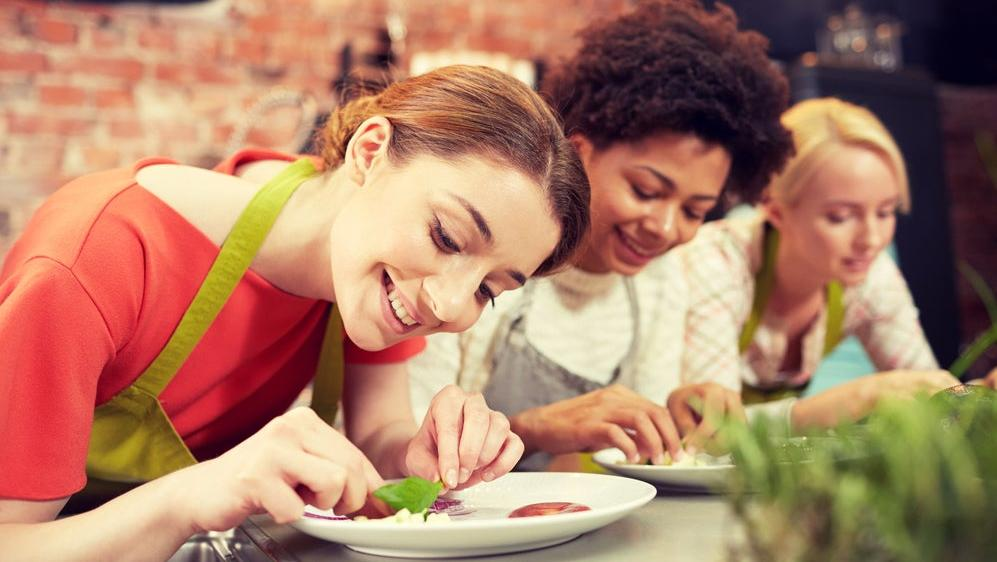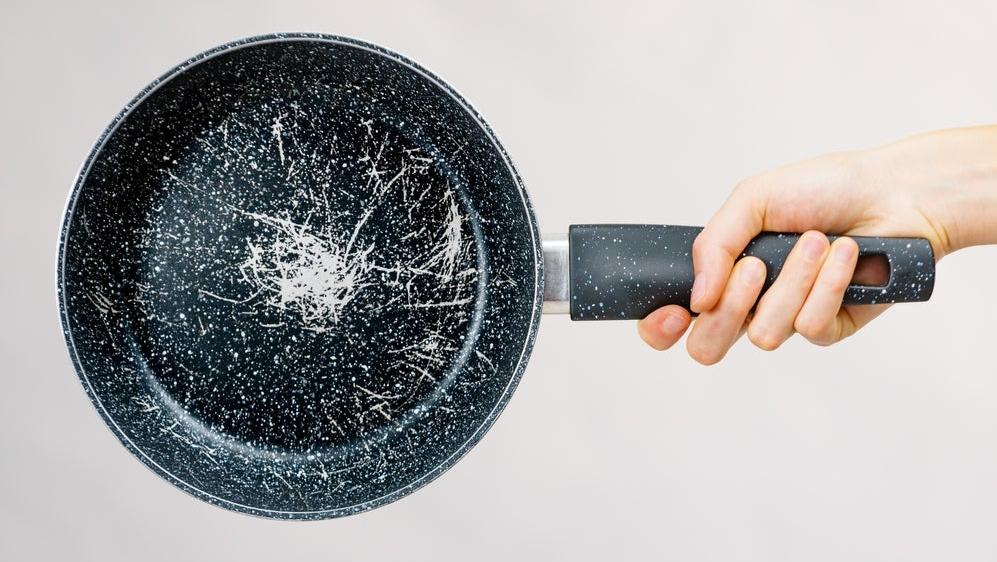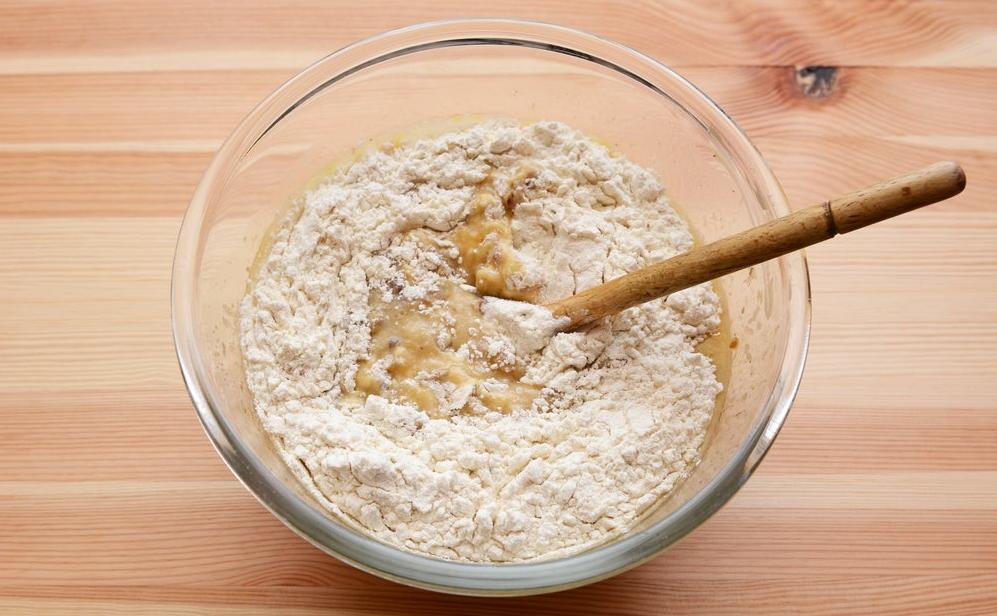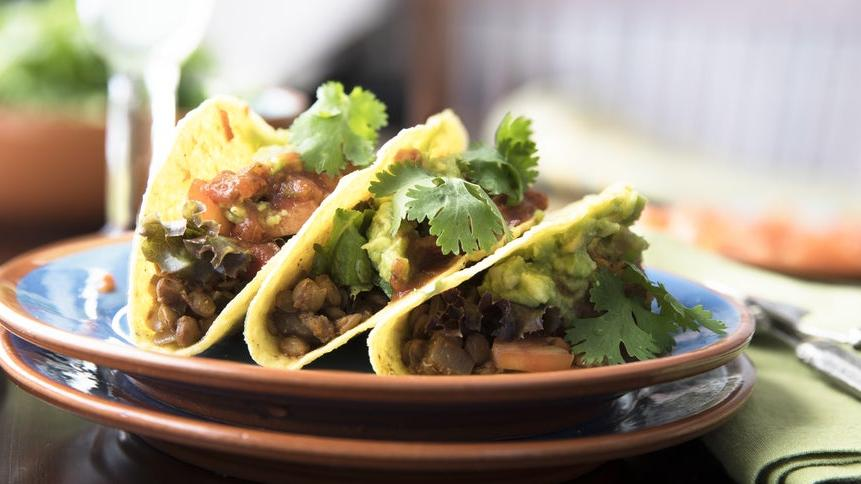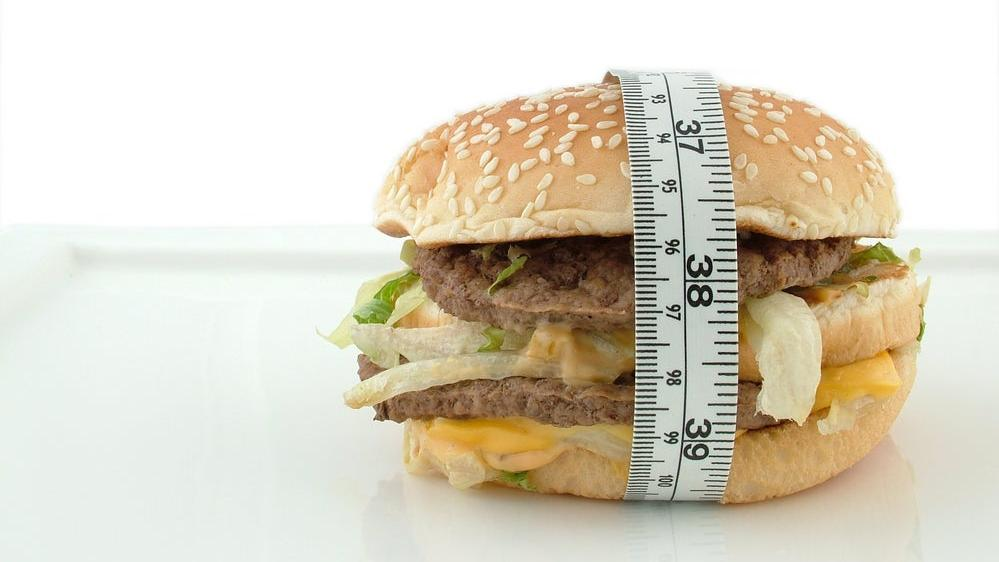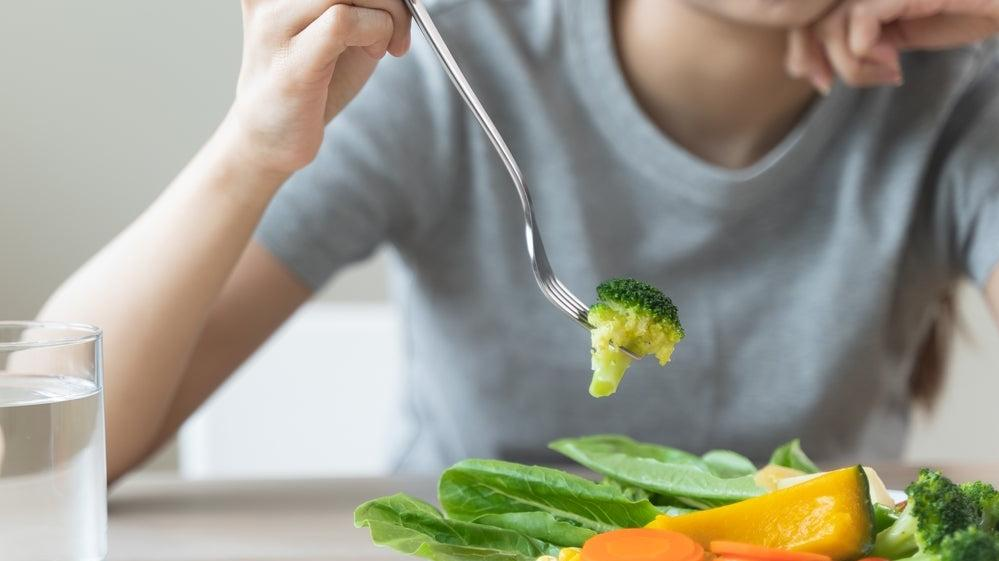6 Of The Best (And Worst) Lessons I Learned In High School Nutrition
Though I took the class half a lifetime ago, some knowledge has stuck with me—for better or for worse.
In early 2005, I took a high school Foods & Nutrition class to fill a gap in my schedule. Seventeen years later, I'm still processing it.
The name "Foods & Nutrition" was appropriately two-faced, as the class split the difference between teaching us how to cook satisfying meals and how to process the guilt of actually eating them. This was, after all, the nadir of the celebrity tabloid era, when images of stars who had tragically "let themselves go" were as common as lists of pointers for "how to look like you lost 5 pounds in one day" (they really and truly recommended that teen girls take anti-gas pills to look leaner). The syllabus reflected the bipolar attitudes of the day, condemning and reifying toxic attitudes around food in equal measure.
There's no rhyme or reason to which lessons are still vivid in my mind all these years later; I think anything particularly humiliating or revelatory was bound to stick around. Yes, revelatory—because some of the lessons were genuinely valuable, and I apply them to my cooking to this day. Here's what I really learned in Foods & Nutrition class, from the useless to the useful.
Cook with the right utensils
On day one, our instructor told us that anyone seen using metal utensils in the nonstick pans would get an automatic zero. Not an F, but a zero, every honor roll kid's worst fear. I thought at the time that she was being dramatic, just trying to make a point about whose rules would fly in this kitchen, but it's all too true that anything besides a nylon turner, rubber spatula, or wooden spoon might irreparably scar the surface of your cookware. I know this now because I once walked in on a roommate stirring scrambled eggs with a fork, and the omelet pan has never been the same.
Don’t overmix
Our class was divided into groups of four and each group was assigned a kitchen station. All semester, the foursomes collaborated on each recipe and were given a collective grade based on the resulting dish. On banana bread day, this turned to disaster.
The recipe clearly stipulated, DO NOT OVERMIX, referring to the step where you add the mashed bananas to the rest of the batter. The caps lock was a bit much, but justified: My classmate tasked with mixing the batter was distracted by the flirtations of our fellow group mate and absentmindedly kept stirring, stirring, stirring, her eyes toward her paramour rather than the bowl. I watched the bananas turn to soup and the batter turn gluey. The resulting loaf of bread was a slog to slice through, with no crumb to speak of. It got the lowest grade in class. Don't overmix. Leave things a little chunky.
Vegetarian alternatives are awesome
I grew up with a rather meat-and-potatoes diet, and "tacos" hewed to the narrow definition of "unadorned ground beef in an Ortega hard shell." So when the Foods & Nutrition teacher said we were going to make vegetarian tacos using lentils, I was prepared to be grossed out by an abomination of thin slop.
The joke was on me, of course—the tacos were hearty and tasted great, thanks to lentils' ability to absorb the flavors of whatever they're cooked in (in this case, a mix of onion, garlic, and spices.) Not only were the tacos a success, but this lesson about neutral proteins was then demonstrated again with tofu In later recipes. Lentils and other veggie-friendly alternatives are not only versatile, but economical, and this knowledge arguably prepares a high school kid for college more than trigonometric functions ever could.
Don’t make kids watch Super Size Me
It was the early 2000s and Jared Fogle was somehow the most famous man in America, holding up old pairs of pants on every TV screen. So Morgan Spurlock's buzzy 2004 documentary about the perils of eating a 100% McDonald's diet for 30 days straight probably felt like a natural addition to the Foods & Nutrition curriculum. What could be so wrong about showing kids why they shouldn't overload on fast food?
Just about everything was wrong with it, in fact. There have been some thoughtful critiques of the smash-hit film in the 18 years since its release, but suffice it to say that Spurlock isn't making the point about the perils of cheeseburgers that he thinks he is. When we watched this movie in class, the unintended consequence is that it gave us permission to judge the individual consumers of fast food, rather than a system that continually presents fast food as the primary affordable and accessible option for millions of Americans. Screening this film for teens only reinforces the lessons that toxic diet culture already teaches them: that the food you eat is directly linked to your morality, and that "bad" foods are only chosen by those with inferior willpower. Or do we need to show you Jared's old slacks again?
Don’t teach kids how to diet
My Foods & Nutrition textbook had all the hallmarks of a tome from the early 1990s: a pile of waxy-looking fruit on the front cover, a page about how to bake cakes in the microwave, and of course, a big, thick chapter on how to "maintain your figure."
I'll never forget flipping to a page full of tips for sticking to your diet. A photo of a woman at the cosmetics counter of a department store was accompanied by the caption, "At the end of each successful week, treat yourself to a non-food reward, like a bottle of perfume!"
The worst part of all this diet messaging, though, was how bipolar it was. I looked up from the textbook to find that my teacher was actually starting the lesson on how to spot an eating disorder in a friend or loved one. What was the ultimate lesson here? We should never stray from the diets that we absolutely must adopt and never reward ourselves with food, but must also learn to internalize that messaging only up to a precise degree, lest we become too militant and restrict our food intake too much? This is no lesson in moderation; it's a lesson in doing what society wants you to do, without making society feel bad about it. One way or another, we should be weighing the morality of our food choices constantly. And saving up our babysitting money for perfume, apparently.
Food should be a pleasure
At its best, my Foods & Nutrition class provided great recipes and a valuable hour in the day to laugh with our friends and sample unfamiliar foods. At its worst, it instilled some well-intentioned but arbitrary lessons designed to cause kitchen anxiety. For example, peeling an apple too close to the garbage can would knock you down to a C ("you might drop it in there!"), and many recipes were written in a "gotcha!" manner that taught you how important it was to read instructions all the way through before cooking. (The final step would be something like, "Disregard all prior steps and go dice a carrot instead.")
Despite its pitfalls, the class provided a lot of great cooking lessons I'm still teasing apart from its bullshit. Whether the teacher was aware of it or not, the real lesson ended up being something else entirely: having fun with food, truly enjoying each bite and feeling satisfied with what you've created, is the only way to establish a truly healthy relationship with it.
